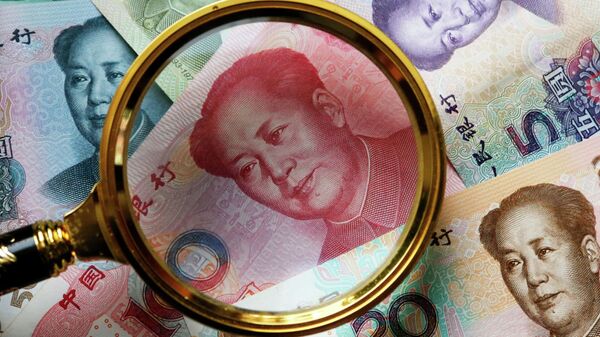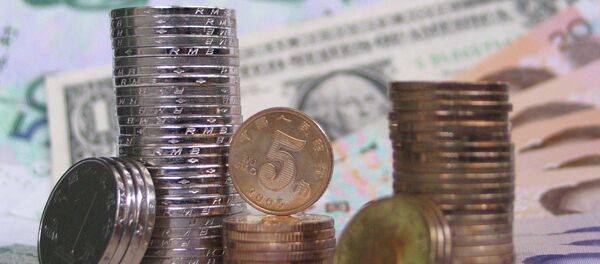WASHINGTON (Sputnik) — Beijing may have reacted too abruptly in devaluing its currency to spur economic growth but, if successful, it will intensify demand for crude oil products, experts told Sputnik.
“The cost of what they [China] export is going to go down and that should stimulate their economy,” Texas A&M University Clinical Associate Professor Detlef Hallermann told Sputnik on Wednesday. “When that stimulates their economy they are going to have greater demand for crude and crude products.”
When the price of the Yuan drops, Hallermann explained, exports become cheaper, Chinese companies are able to sell more products around the world and more cash is injected into China’s economy.
As demand for more Chinese products increase, China’s domestic plants will demand more oil to produce said products, he added.
Hallermann warned, however, that by devaluing its currency Beijing essentially strengthens the value of the US dollar, which oil is traded in, thereby making more expensive the crude oil China needs to run its plants.
“It’s very circular,” Hallermann explained. “Short-term effect is the Chinese are trying to stimulate their economy by reducing the value of their currency and increasing their exports… but the overall effect, for part of their economy, is that they will be paying more for their crude.”
Johns Hopkins University Applied Economics Professor Steve Hanke told Sputnik the Chinese are overreacting in their attempt to spur growth.
“I think they are quite panicked because the money supply is growing slowly,” Hanke said.
The bigger problem, Hanke claimed, is that the United States and International Monetary Fund (IMF) forced China to change its currency policies.
China had more stability and high growth when it had a fixed exchange rate between the Yuan and the US dollar from 1994 to 2004, Hanke explained.
“Since then they [the Chinese] have had this wobbly managed exchange rate that has thrown instability and uncertainty into the picture,” he noted.
The uncertainly is bad for China and the world, Hanke underlined, especially considering China accounts for 50 percent of the incremental growth in the global economy.
The IMF has welcomed China’s move to devalue the yuan, but indicated that the Chinese currency must float freely to gain market relevance and effectiveness.



